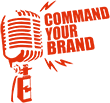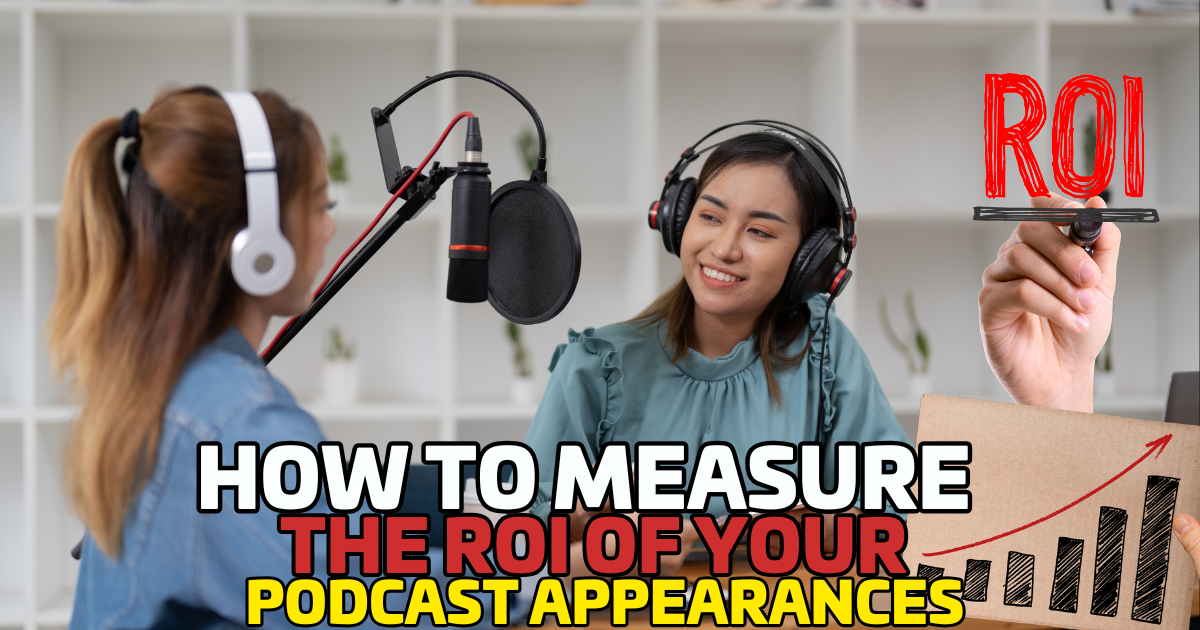Podcast guesting has become one of the most powerful modern PR strategies for founders, coaches, and CEOs.
By sharing your story on shows that reach your target audience, you build credibility, strengthen thought leadership, and create long-term visibility.
But here’s the challenge: How do you measure the ROI of podcast appearances?
Unlike paid ads, which provide instant data on clicks and conversions, podcast ROI can feel less tangible.
Many founders struggle to understand whether their podcast interviews are driving business results.
The good news is that podcast ROI can be measured, if you know what to track.
In this article, we’ll explore:
- Why traditional PR metrics don’t always apply to podcasts.
- The different types of ROI from podcast appearances.
- Key metrics and tools for measuring podcast impact.
- A step-by-step framework for tracking your results.
- Why podcast guesting is a long-term investment in authority and influence.
Why Measuring Podcast ROI Is Different from Traditional PR
Traditional PR, like press releases and news articles relies heavily on metrics such as media impressions, readership, and ad value equivalency.
But these don’t translate well to podcasts.
Why? Because podcast interviews are long-form, relationship-driven, and evergreen.
- Podcasts are consumed differently. Listeners engage for 30-60 minutes, compared to the 8 seconds of attention a news article may receive.
- Podcasts build trust, not clicks. The value lies in the credibility transferred from host to guest, not in raw traffic numbers.
- Podcasts live forever. Unlike fleeting news cycles, your podcast interviews remain online, discoverable months or years later.
This means ROI from podcast PR must be evaluated through a different lens, one that considers visibility, influence, and authority alongside measurable business outcomes.
The 4 Types of Podcast ROI
Podcast ROI goes beyond direct revenue.
Founders can measure results in four main areas:
1. Visibility ROI
- Increase in website visits after episodes air.
- Growth in social media followers or engagement.
- Higher search rankings for branded keywords.
2. Authority ROI
- Being seen as a thought leader within your niche.
- Invitations for more speaking engagements, panels, or podcasts.
- Strengthened credibility with potential investors or partners.
3. Relationship ROI
- Networking with podcast hosts who are influencers in your industry.
- Building partnerships through introductions made after interviews.
- Expanding your professional circle organically.
4. Revenue ROI
- Leads generated directly from podcast appearances.
- Sales attributed to podcast call-to-actions.
- New clients, customers, or deals closed after exposure.
For founders, the sweet spot often lies in combining these ROI types.
Even if an interview doesn’t generate instant sales, it may yield visibility and credibility that pay off in long-term business opportunities.
Key Metrics for Measuring Podcast ROI
If you want to measure ROI effectively, start by tracking the right metrics.
Website and Landing Page Traffic
- Track spikes in traffic after an episode goes live.
- Use custom landing pages or URLs to measure podcast-specific visits.
Lead Generation
- Offer a lead magnet (ebook, checklist, free webinar) exclusive to podcast listeners.
- Track opt-ins to measure how many leads came from an appearance.
Email Sign-Ups and Subscriber Growth
- Monitor your email list growth after an episode.
- Use episode-specific sign-up incentives to track conversions.
Social Media Engagement
- Watch for increases in mentions, follows, and shares.
- Use branded hashtags or episode tags to attribute activity.
Backlinks and SEO Impact
- Many podcasts include links to your website in show notes.
- These backlinks help improve your SEO authority.
Direct Revenue
- Use unique discount codes or referral links mentioned in interviews.
- Track sales conversions directly tied to podcast appearances.
Tools to Track Podcast ROI
The right tools can make podcast ROI measurable and actionable:
- Google Analytics → Track referral traffic and landing page conversions.
- UTM Parameters → Add tracking codes to links shared in podcast show notes.
- CRM Software (HubSpot, Salesforce, Zoho) → Attribute leads and deals to podcast appearances.
- Podcast Monitoring Tools (Chartable, Podchaser Pro) → Track episode reach, rankings, and downloads.
- Social Listening Tools (Mention, Brand24) → Monitor mentions of your brand after interviews.
A Step-by-Step Framework for Founders
Here’s how founders can put this into action:
Step 1: Define Your Goals
Do you want more leads, stronger authority, or brand awareness? Set clear KPIs for your podcast strategy.
Step 2: Create Trackable Offers
Use lead magnets, special landing pages, or discount codes that make podcast-driven conversions measurable.
Step 3: Monitor Traffic and Leads
Check analytics within 48-72 hours of an episode going live, then again after 30 days to assess long-tail impact.
Step 4: Track Authority Growth
Document speaking invitations, new partnerships, or press mentions that result from interviews.
Step 5: Assess Long-Term ROI
Unlike ads, podcast ROI compounds over time. Review results quarterly to see which interviews continue to deliver.
Why Podcast ROI Shouldn’t Be Measured Like Ads
It’s important for founders to understand that podcast interviews are not ads.
ROI is not always immediate, it’s cumulative.
- A single episode may generate 10 leads.
- But six months later, someone might discover that same episode, leading to a major partnership or deal.
- Each podcast interview builds your digital footprint, stacking credibility with every appearance.
When compared to press releases or paid campaigns, podcasts deliver a higher trust ROI, and trust often translates into long-term revenue growth.
Real-World Example
Consider a founder who appeared on five mid-sized industry podcasts over three months.
The results:
- 20% increase in website traffic.
- 150 new email subscribers from podcast-specific lead magnets.
- Two inbound partnership requests from listeners.
- One new client worth $50,000 annually.
The cost of appearing on these shows? Just preparation time and outreach.
The ROI? Exponential compared to running a paid campaign or issuing a press release.
Measuring the ROI of podcast appearances requires looking beyond short-term numbers.
Founders who prioritize podcast PR see benefits in visibility, credibility, relationships, and revenue, all of which compound over time.
By setting clear goals, tracking the right metrics, and leveraging tools, you can turn podcast guesting into a measurable, high-ROI growth strategy.
Ready to maximize the ROI of your podcast interviews? Start by learning how to land the right shows.
Read our guide on How to Get Booked on Top Podcasts as a Founder or CEO and take control of your podcast PR strategy today.




